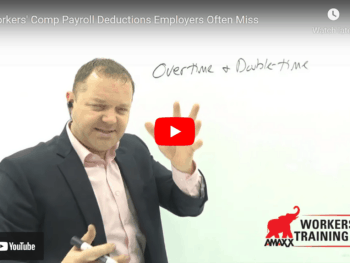Here’s what Tom Robinson, J.D., writer for Lexis Nexis Workers Comp Law Center reveals about Iowa Employer’s Suit for Specific Performance of Settlement Agreement Allegedly Reached Over the Telephone . . .
Here’s What Happened
Branson, an assembly repair person employed by Eaton for many years, sustained a work-related rupture of the bicep tendon in his right shoulder. Branson underwent shoulder surgery, was out of work for a few weeks, returned first to light duty and later to regular work.
Branson’s physician initially issued a report indicating Branson had a 16% impairment rating to his right upper extremity and the impairment rating translated to a 10% body-as-a-whole disability rating, later increased by the doctor to 12%.
Unrepresented by counsel at the time, Branson and a representative for the employer’s third-party administrator had at least three phone conversations regarding possible settlement of Branson’s claim. It was undisputed that Branson rejected several prior settlement offers before their telephone conversation on November 12, 2007.
During this final telephone conversation the representative offered to pay Branson the lump sum of $ 26,436.30 to settle his workers’ compensation case on a “closed file basis.” The representative testified in prior conversations he explained to Branson what “closed file basis” meant. Branson testified he did not accept the November 12 settlement offer and specifically told the representative that he thought that offer “was fairer than the last offer,” but he wanted to see the papers on it.
The representative’s version of the conversation was that Branson unconditionally agreed to the settlement offer. The representative forwarded settlement papers to Branson, who then hired an attorney. Branson’s attorney then communicated a rejection of the offer.
Eaton filed the instant civil action requesting specific performance of the agreement and punitive damages. The district court dismissed Eaton’s action and Eaton appealed. (workersxzcompxzkit)
Here’s How the Court Ruled
In Eaton Corp. v. Branson, 2009 Iowa App. LEXIS 577 (June 17, 2009), the Court of Appeals of Iowa affirmed. Observing that the plaintiff’s burden in a suit for specific performance is to prove by clear, satisfactory, and convincing evidence the terms of the contract, the court said that giving weight to the trial court’s credibility determinations, it agreed that this appeared to be a situation where the participants in the phone call were on different wavelengths and may have misunderstood what each other was saying. The appellate court pointed out that the district court had used the common shorthand “meeting of the minds,” that what the phrase really means is that in order to have a contract, there must be a manifestation of mutual assent. Absent such a manifestation, there is no contract. The appellate court agreed that Eaton failed to establish Branson actually accepted the closed file offer on November 12, 2007.
See generally Larson’s Workers’ Compensation Law, §§ 132.01, 132.03.
Tom Robinson, J.D. is the primary upkeep writer for Larson’s Workers’ Compensation Law (LexisNexis) and Larson’s Workers’ Compensation, Desk Edition (LexisNexis). He is a contributing writer for California Compensation Cases (LexisNexis) and Benefits Review Board – Longshore Reporter(LexisNexis), and is a contributing author to New York Workers’ Compensation Handbook(LexisNexis). Tom Robinson is an authority in the area of workers’ compensation and we are happy to have him as a Guest Contributor to Workers’ Comp Kit Blog. Tom can be reached at: compwriter@gmail.com.
http://law.lexisnexis.com/practiceareas/Workers-Compensation
TD Calculator:
www.ReduceYourWorkersComp.com/transitional-duty-cost-calculator.php
Follow Us On Twitter: www.twitter.com/WorkersCompKit
Do not use this information without independent verification.
All state laws vary.
©2008 Amaxx Risk Solutions, Inc. All rights reserved under International Copyright Law. If you would like permission to reprint this material, contact Info@WorkersCompKit.com

























